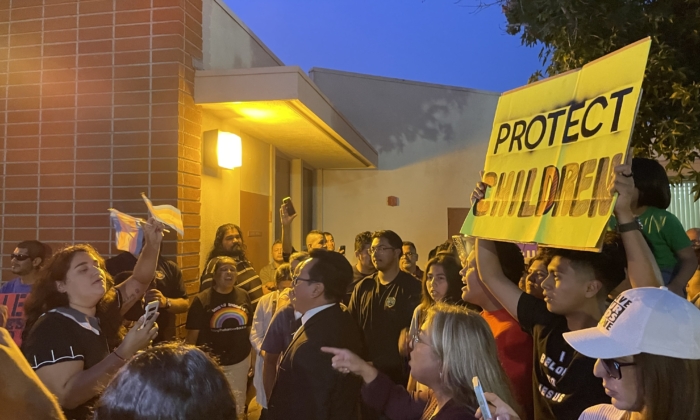
Reversing the Loss of Soil Organic Matter – The Elephant in the Room and Solution to Closing the Emissions Gap
by André Leu, Regeneration International Director
The climate change debate’s ‘Elephant in the Room’ ignores 100 Gt (billion tons) of yearly CO2 emissions from soil carbon loss. Soils contain over 2,700 Gt of carbon, the largest terrestrial source. It defies scientific credibility to ignore a carbon source more than double the combined global reserves of 905 Gt of carbon stored in coal, natural gas, and oil and 450 Gt in vegetation.
Excessive tillage, bare soil, erosion, and synthetic nitrogen fertilizers cause the carbon in soil organic matter (SOM) to oxidize, convert to CO2, and significantly increase atmospheric CO2 levels.
Implementing regenerative agriculture can reverse climate change by eliminating CO2 emissions from SOM loss caused by industrial agriculture. Regenerative agriculture captures CO2 in the soil and enhances SOM. The key to restoring our planet’s climate lies in removing the primary source of CO2 and increasing the terrestrial environment’s capacity to absorb it through photosynthesis. This can be accomplished by stopping ecosystem destruction, restoring forests and pastures, and discontinuing synthetic nitrogen fertilizers by replacing them with cover crops. These are easy-to-achieve, shovel-ready solutions.

The Corn Saga: How Years of Activism, Scientific Research and Perseverance Led to an Inspiring Victory Against Big Ag and the GMO Giants
by Ercilia Sahores and Mercedes López
**UPDATE 3/6/2025: After five hours of deliberation, with a vote of 97 in favor and 16 opposing, the Mexican Senate approves the constitutional reform to ban GMOs. In a closing statement the director of the Morena party Adán Augusto López Hernández stated, “We must continue protecting our country, we will not fail.”
MEXICO CITY – On February 25, the Chamber of Deputies approved a constitutional reform to articles 4 and 27 to prohibit the planting of genetically modified corn, prioritize the protection of biodiversity and food sovereignty, defend the milpa system and promote traditional crops and native seeds.
The road to this victory has been long and arduous involving many dedicated activists, organizations, lawyers, researchers, farmers, environmentalists and concerned citizens. The Organic Consumers Association (OCA) and our sister organization, Vía Orgánica, are proud to say that we have played a key role in the success of this movement.

Traditional Grains: A Path to Sensible and Relevant Food Security
By Precious Phiri- RI African Coordinator and Walter Mugove Nyika – RESCOPE Director, Zambia
Zimbabwe and many parts of Southern Africa have long relied on maize as the staple crop. However, the increasing climate variability even in good rainfall years like 2025 and the 2024 El Niño-induced drought have exposed maize’s vulnerabilities. Traditional grains such as finger millet, sorghum, and pearl millet are proving to be more resilient and sustainable, both nutritionally and environmentally. The United Nations Food and Agriculture Organization (FAO) has emphasized the importance of diversifying staple crops to improve food and nutrition security across the region. This piece shares the growing urgency around transitioning from maize to traditional grains such as finger millet, sorghum, and pearl millet, particularly in the context of arid Zimbabwe and broader Southern Africa.
The Impact of the 2024 El Niño on Zimbabwe and Southern Africa
The past year (2023/2024 season) has been devastating for the agricultural sector. The prolonged dry spells and erratic rainfall patterns associated with El Niño led to a distinct contraction to the agricultural sector with:
•6 million Zimbabweans facing food insecurity during the 2024–2025 lean season.
•Over 9,000 livestock deaths across the region (Zimbabwe, Zambia, Botswana and Namibia)due to severe drought conditions.
•Southern Africa recording its worst hunger crisis in 4 decades, affecting millions of people.
This year’s growing season was full of promise and great rains, but in the harsher regions like ours in Western Zimbabwe, the rains still had long dry spells and went away too early causing a huge failure in the maize crop plants.

Native Plants for Urban Balconies
by Jeremie Fant, Urban Botanist and Scientist at Chicago Botanic Garden
“As an Urban botanist and plant lover, most of my wild plant sightings are of the same aggressive introductions, hanging on in the cracks of the sidewalks. The alternatives are urban gardens, yet most are filled with the same gaudy box-store plants. Don’t get me wrong, I do admire the steadfast dandelion, for its tenacity and beautiful spring colour, and am a huge fan of the wonderful displays of colourful impatiens and petunias that sprinkle our city in summer, and dare I say it, I love the gorgeous red of the aggressive burning bushes each fall. But as a horticulturally trained scientist who spends most of his time studying native species, I know we could do better.
As all passionate about any topic have experienced, knowledge can be a curse. The more you know, the harder it can be to get excited by the everyday. Be it food, cars, architecture, or even plants, whatever you love, we are always aware that things are not always as good as they can be. With over 400,000 plant species in the world, the number I see on my daily walk seems frustratingly low. What is more, I also know that there are always better choices.”

Don’t Mess With Mexico’s Maíz: Constitutional Amendment to Ban GMO Corn Seeds
by Kate Linthicum
“There’s a popular saying in Mexico, where corn is as central to national mythology as it is gastronomy. Sin maíz, no hay país. Without corn, there is no country.
This week, Mexico’s leaders voted to enshrine that concept in the Constitution, declaring native corn “an element of national identity” and banning the planting of genetically modified seeds.
The measure, which aims to protect Mexico’s thousands of varieties of heirloom corn from engineered versions sold by American companies, has become a nationalist rallying cry. Support for the reform has only grown in recent months as Mexico has fended off insults, threats of tariffs and even the specter of U.S. military intervention from President Trump.”

Sarah Compson (IFOAM Organics International): It Is Important to Design Systems in Which Farmers Are at the Centre
by Oriol Urrutia
“Sarah Compson is the Standards Innovation Director at Soil Association. With nearly 20 years’ experience in the organic sector, she has detailed knowledge on a range of topics from food and farming standards to textiles. Sarah is particularly involved with IFOAM Organics International– the umbrella organisation for the organic movement, of which she is a member of the World Board.
On December 6, 2024, the General Assembly of IFOAM – Organics International approved the statement ‘Elevating Truly Regenerative Agriculture – Statement from the Organic Movement’ in Taiwan, which provides members, partners and regenerative actors with valuable perspectives from the organic movement on current regenerative initiatives and claims to inspire thought and action.”

From Soil to Soul: Young Filmmakers Explore the Local Food Sovereignty Movement
by Arty Mangan, photo credit: Bioneers
Through the powerful stories of Black, Indigenous, and People of Color (BIPOC) farmers, regenerative practitioners, food activists, and thought leaders, the film series From Soil to Soul charts a path toward food sovereignty — a future where communities reclaim their right to control their local food systems. And by doing so, heal themselves and their communities. The three creators of this film series, a geospatial data scientist, an expert in sustainability and regenerative strategies, and a multimedia artist and filmmaker, share what they have learned in the process.
Ankur Shah uses satellite data to assess climate hazards and environmental issues, and is the Director of Operations at Mycelium, where he has designed sustainable food systems.

The Fourth Regeneration International Certificate Course in Partnership with The South Seas University
by André Leu, Regeneration International Director
The Regeneration International Academy, in collaboration with South Seas University, has conducted its fourth online certificate course in regenerative agriculture, agroecology, and organic farming. Integrating the three major global nature-based agricultural movements—agroecology, regenerative agriculture, and organic farming—is essential as complementary systems.
This semester, 20 students from each continent—Africa, Asia, Europe, North America, Central America, South America, Australasia, and the Pacific—will receive certificates. Importantly, these certificates are from an accredited degree-granting university.
Most people know me as a long-time organic farmer and the international director of Regeneration International. I possess decades of teaching experience, a degree in communication, and a post-graduate degree in adult education. I have taught and lectured at higher education institutions across most continents, developing and conducting various courses. These include training programs for farmers, some delivered in institutions and others held on farms during farmers’ shed meetings.
|
|

African States Urged to Implement Agroecology Policies
Stakeholders representing smallholder food producers, civil society organisations, researchers, and policymakers in Africa have called on governments to invest in agroecology to advance food sovereignty across the continent. The stakeholders, led by the Eastern and Southern Africa Small-Scale Farmers Forum (ESAFF) Chairperson Hakim Baliraine, urged African states to prioritise agroecology by developing and funding policies that support farmers, seed sovereignty, and sustainable food production.
America’s “First Car-Free Neighborhood” Is Going Pretty Good, Actually?
It’s been two years since Culdesac Tempe, the self-proclaimed “first car-free neighborhood in America,” opened with a goal of making walkability its centerpiece. With the first phase finished last year, the high-profile development continues to unfold on a 17-acre site along a light rail line in an established neighborhood about 15 miles east of downtown Phoenix. The $200 million project now includes 288 apartment units with about 300 tenants, reeling residents in with appeals of a healthier, more eco-friendly lifestyle, built-in community with ample amenities, and accessible transit to Tempe and the greater metro area.
“Chaos and Panic” As US Slashes Funds for Small Farmers and Food Assistance
Farmers and food assistance groups around the country were reeling this week amid a series of moves by the Trump administration to cut funding for programs that support small and disadvantaged farmers and provide food for low-income families.
Glaciers Vanishing Fast – 273 Billion Tons of Ice Lost Annually
As of the year 2000, glaciers—excluding the continental ice sheets of Greenland and Antarctica—covered an area of 705,221 km² and held approximately 121,728 billion tons of ice worldwide. Since then, glaciers have lost about 5% of their total ice mass, with regional losses ranging from 2% in the Antarctic and Subantarctic Islands to as much as 39% in Central Europe.
Why It’s Time to Bring Back Seed Guardians: The Race to Save Indigenous Seeds
The climate crisis is no distant threat — for the world’s 570 million or so smallholder farmers, it’s already making life more difficult. More frequent extreme weather events are scorching crops, disrupting food systems, and intensifying hunger for millions. Over a quarter of the world’s population already faces food insecurity, and with food demand only expected to increase with rising global populations, the challenge of feeding the world on a hotter planet is daunting. Continuing to rely on industrial agriculture — responsible for up to a third of global greenhouse gas emissions — is a surefire recipe for disaster.
New Setbacks for Peruvian Amazon Reserve Put Uncontacted Tribes at Risk
In 2003, Indigenous organizations petitioned the Peruvian government to create Yavarí Mirim, an Indigenous reserve on the Amazon border with Brazil and Colombia, spanning 1 million hectares (2.5 million acres), according to sources interviewed by Mongabay. Their goal was to protect hundreds of Indigenous peoples in the region who had little to no contact with the outside world. Extractive and illegal activities were advancing into their territory, and time was of the essence.
Monarchs are in decline across their range in North America and one of the most significant actions you can take to support monarch populations is providing nectar-rich flowers and milkweed host plants. Adult monarchs depend on diverse nectar sources for food during all stages of the year, from spring and summer breeding to fall migration and overwintering. Caterpillars, on the other hand, are completely dependent on their milkweed host plants. Inadequate milkweed or nectar plant food sources at any point may impact the number of monarchs that successfully arrive at overwintering sites in the fall.
6 Indigenous Women Activists of the Amazon You Should Know
Across the Amazon rainforest, the legacy of Indigenous women as fierce protectors of the environment has shaped a powerful movement against exploitation and climate threats. Women in various Indigenous communities across the Amazon have kept up the fight against the injustices that face their lands for decades. In the early 2000s some of these women united in yearly marches known as Marchas das Maragarida, in honour of the late Margarida Maria Alve, which focused on advocating for women’s rights, education, and land reform — and this movement is still alive today. More recent movements such as Mujeres Amazónicas have taken significant steps against governmental and corporate efforts to threaten their ancestral land.
Gardening Linked to Staying Sharp in Later Life, Study Finds
A study which examined the lifestyles of hundreds of older adults found that those who spent time gardening had better cognitive function in later life than those who did not. Importantly, this was the case even when accounting for a person’s socio-economic status, time spent in education, childhood cognitive ability, health, and overall level of physical activity in older age.
Earth’s Domino Effect: Melting Greenland Ice Could Trigger Amazon Rainforest Collapse
The Earth’s climate system is highly complex, with its key components—the ocean, atmosphere, and vegetation—closely interconnected. Changes in one element can trigger widespread effects throughout the system. While these components exhibit some resilience and can absorb certain fluctuations, climate and Earth-system research suggest the existence of critical tipping points. If these thresholds are crossed, the climate system could shift rapidly into a different state.
Mapped: How Extreme Weather Is Destroying Crops Around the World
Drought leaving rice fields cracked and dry. Heavy rainfall flooding orange groves. Tropical cyclones tearing down banana plants and coconut trees. Carbon Brief has analysed global media coverage over the past two years to identify reporting on extreme weather events damaging crops.
Call to Invest in Agroecology for Sustainable Food Systems
According to Ferdinand Wafula, the founder and coordinator of the training centre, farmers from Vihiga, and as far as Kakamega and Nandi counties, have been streaming in every week to learn about regenerating seeds so as to maintain unique traits and adaptability to local climates, health and fertility of soil through the use of ecological farming practices, and to mingle with other farmers from different parts of the region.
|
|
Support Our Work

Dear Friends of Regeneration International
Regenerative Agriculture is under attack by agribusiness. The poison cartels such as Bayer/Monsanto and Syngenta, along with their captive government departments, are trying to hijack regenerative agriculture to greenwash their degenerative systems.
“We need your participation and support as we move forward in this world-changing campaign we call Regeneration International. We need to build a massive international alliance to reduce emissions of greenhouse gases, to sequester billions of tons of excess atmospheric carbon in our soils and biota, to regenerate billions of acres of degraded ecosystems, to eliminate rural poverty, to reverse our deteriorating public health and to revitalize rural communities all over the globe. The hour is late, but we still have time to regenerate.”
Please support our campaign to stop this greenwashing and ensure Regenerative Agriculture’s integrity by restoring farmer’s independence, promoting social justice, fair trade and regenerating ecological health.
Can you give $10 monthly or a one time donation today to support Regeneration International and our campaigns?
|
Upcoming Events |

In Person:
04/08 – Soil Health Now Conference
04/22 – Let’s Bring Regenerative Agriculture to NYC
04/26 – Workshop: Compost like a Pro!
04/28 – Immersive Introduction to Regenerative Agriculture
04/29 – Women Transforming Food & Finance
Online:
04/04 – Webinar: No-Till For Regenerative Organic Farms
04/09 – Webinar: Markets ROI of Organic Transition for Dairy Farmers
04/30 – Webinar: From Seed to Certification—Navigating the Journey of Organic Herb Farming
*Click here to view full events calendar and submit your own
|
|
The post Regenerative Solutions Newsletter – Inspiring Victory Against Big Ag and the GMO Giants appeared first on Organic Consumers.
.png)













 English (US)
English (US)